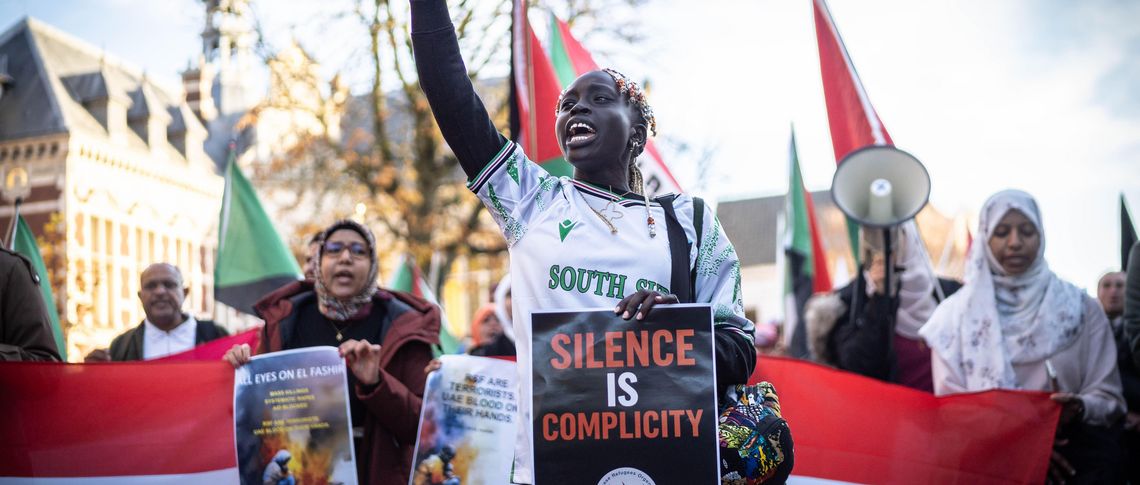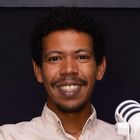Apocalyptic. That is how German Foreign Minister Johann Wadephul described the situation in Sudan at the Manama Dialogue security conference in Bahrain. His Jordanian counterpart, Ayman Safadi, expressed his shock at a ‘humanitarian crisis of inhumane proportions’ and that Sudan admittedly had not received ‘the attention it deserves’. A few days later, 20 government officials issued a joint statement that was endorsed by nine additional countries, denouncing the atrocities committed by the Rapid Support Forces (RSF) and their allied militias after storming El Fasher, the provincial capital of North Darfur. It read, ‘such acts, if there is reliable evidence to suggest they were committed, constitute war crimes and crimes against humanity under international law’. On 30 October, the UN Security Council condemned the attack and its devastating impact on civilians, with the International Criminal Court (ICC) in The Hague swiftly opening an investigation a few days later.
Admitting the world had turned a blind eye for too long is too little, too late. For months, observers had warned that if El Fasher were to fall after 18 months under siege, the most serious crimes were to be expected. A potential genocide with advance warning, so to speak. In that sense, the war in Sudan has not been forgotten, but rather ignored — as Sudan expert Marina Peter put it.
Although news reports did emerge from Sudan on the rare occasions journalists could gain access, public outrage and, in turn, political action were largely absent.
Already at the start of the war, which has now been raging for two and a half years, the RSF had carried out ethnic cleansing in El Geneina, the capital of West Darfur province. These actions already bore the hallmarks of genocide. The massacres primarily targeted the Massalit people, a non-Arab ethnic group, and are estimated to have killed up to 15 000 people. In El Fasher, it is now another non-Arab group who are being targeted, the Zaghawa.
The RSF emerged in 2013, originating from the Janjaweed militias that were responsible for genocide in Darfur in the early 2000s. Yet it took two decades for the first Janjaweed commander, Ali Abd-Al-Rahman, to be convicted by the ICC for war crimes there on 6 October 2025 — just three weeks before the latest massacres. Sudan’s long-time dictator, Omar al-Bashir, who systematically used the Janjaweed to pursue his own agenda, was indicted by the ICC in 2009 – the first sitting head of state ever to face such charges – and a year later was also accused of genocide.
In the 2000s, the genocide in Darfur attracted significant media attention, fuelled by the activism of celebrities including George Clooney and Mia Farrow. The high-profile visits to Darfur provoked a global outpouring of sympathy, a response that now seems all but forgotten and impossible to reignite.
The problem for Sudan was that its latest war broke out on 15 April 2023, when Russia’s war against Ukraine had already been raging for a year. It also came just months before Hamas carried out its massacre in Israel, and the ensuing war in Gaza monopolised the attention of media, politics and people around the world. Although news reports did emerge from Sudan on the rare occasions journalists could gain access, public outrage and, in turn, political action were largely absent.
Is there a ceasefire in sight?
Now, the deadlock could finally be broken, ironically enough by self-proclaimed peacemaker and aspiring Nobel laureate Donald Trump, who has since made ending the Sudan war one of his goals. The US has formed a Quad with Egypt, Saudi Arabia and the United Arab Emirates, the principal backers of the warring parties in Sudan. While Egypt and Saudi Arabia (along with Turkey, Qatar, to a limited extent Russia and even Iran) support General Abdel Fattah al-Burhan’s de facto government and the Sudanese Armed Forces (SAF) under his command, the United Arab Emirates side with the RSF.
In a statement issued in Washington on 12 September, the Quad agreed on five key conditions: to preserve Sudan’s territorial integrity, to prioritise diplomacy over military solutions, to secure full humanitarian access and protect civilians, to put an end to arms deliveries, and, perhaps most importantly, to ensure an inclusive and transparent political transition process. This will follow a three-month ceasefire and lead to a civilian-led government. Yet whether the three Arab states, each failing on the inclusivity front in their own countries, can be relied upon to keep Sudan’s warring parties at arm’s length during this transition is doubtful. There is also reason to fear that Trump will stop short of securing sustainable peace after brokering a ceasefire.
Without a deeper understanding of Sudan’s internal dynamics, diplomacy risks repeating the very cycles it aims to end. We cannot understand how the latest disaster happened in the country without knowing about its history. Since gaining independence in 1956, Sudan has been trapped in a vicious circle: brief and fragile interludes of democracy have been repeatedly cut short by military coups, handing power back to the same elites who had consistently failed to build a state founded on strong institutions. Sudan has been structurally unbalanced from the outset — with a dominant political centre, marginalised peripheries and an army that sees itself more as the guardian of the nation rather than subordinate to civilian authority.
Sudan has never experienced sustained democratic governance. Every attempt at civilian transition has been violently overthrown. This has led to an almost unbroken succession of civil wars that have depleted the country’s resources and torn its social fabric to shreds. The first war broke out less than a decade after independence and lasted half a century, culminating in 2011 with the secession of South Sudan. The subsequent conflicts were symptoms of the same unresolved crisis: the lack of fair distribution of power and wealth, and the failure to establish an inclusive concept of citizenship.
Sudan needs an all-encompassing solution that cannot come from a temporary truce between two warlords.
Over time, the state’s central institutions have disintegrated. Sudan entered an era of multiple armies, in which nearly every political stakeholder has its own armed forces. The state’s monopoly on legitimate violence – the foundation of any state – effectively ceased to exist. Weapons have now become instruments of political power rather than national defence. ‘There is no military solution to this problem. Neither side will achieve a total victory,’ Sudan’s former prime minister, Abdalla Hamdok, warned in an interview in June 2025.
For many civil society groups – still the backbone of Sudanese society even after two and a half years of war – the latest conflict is merely a continuation of the coup of 25 October 2021. At that time, the army and the RSF together dismantled the constitutional transitional government born out of the 2019 revolution, shattering the delicate foundations of Sudan’s democratic movement.
Sudan now needs an all-encompassing solution that cannot come from a temporary truce between two warlords. What is required is a nationwide reconstruction project: a unified army under full civilian control, genuine transitional justice and an inclusive democratic process. This is both a domestic imperative and a test for the international community.
A stronger role for Germany and Europe is urgently needed to underpin the Quad process, as the only viable diplomatic framework remaining. The EU Council endorsed the Quad’s demands on 20 October, just days before the fall of El Fasher. But words alone are not enough. A substantive EU policy must involve its own diplomatic initiative that sets clear priorities: turning up the pressure to enforce the arms embargo and, crucially, providing more humanitarian assistance for the country and its people who are suffering so much.







